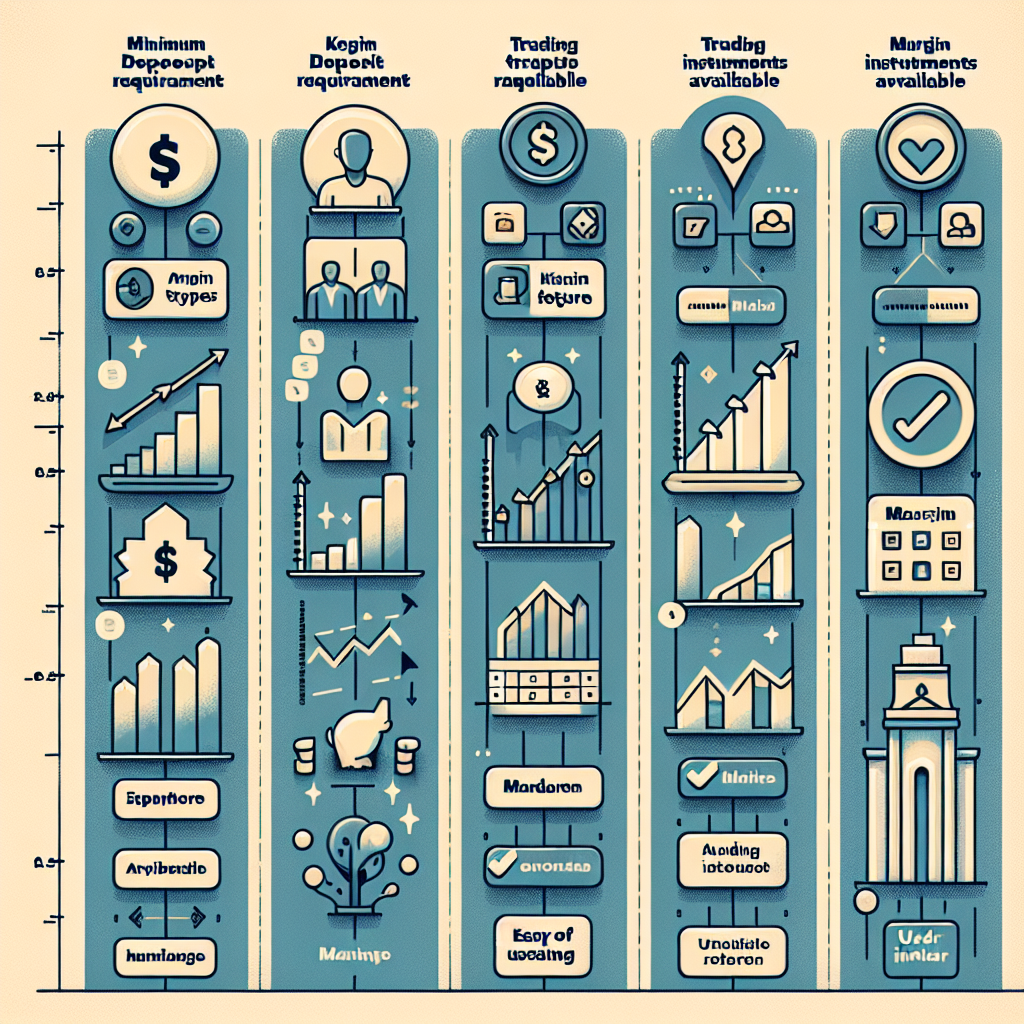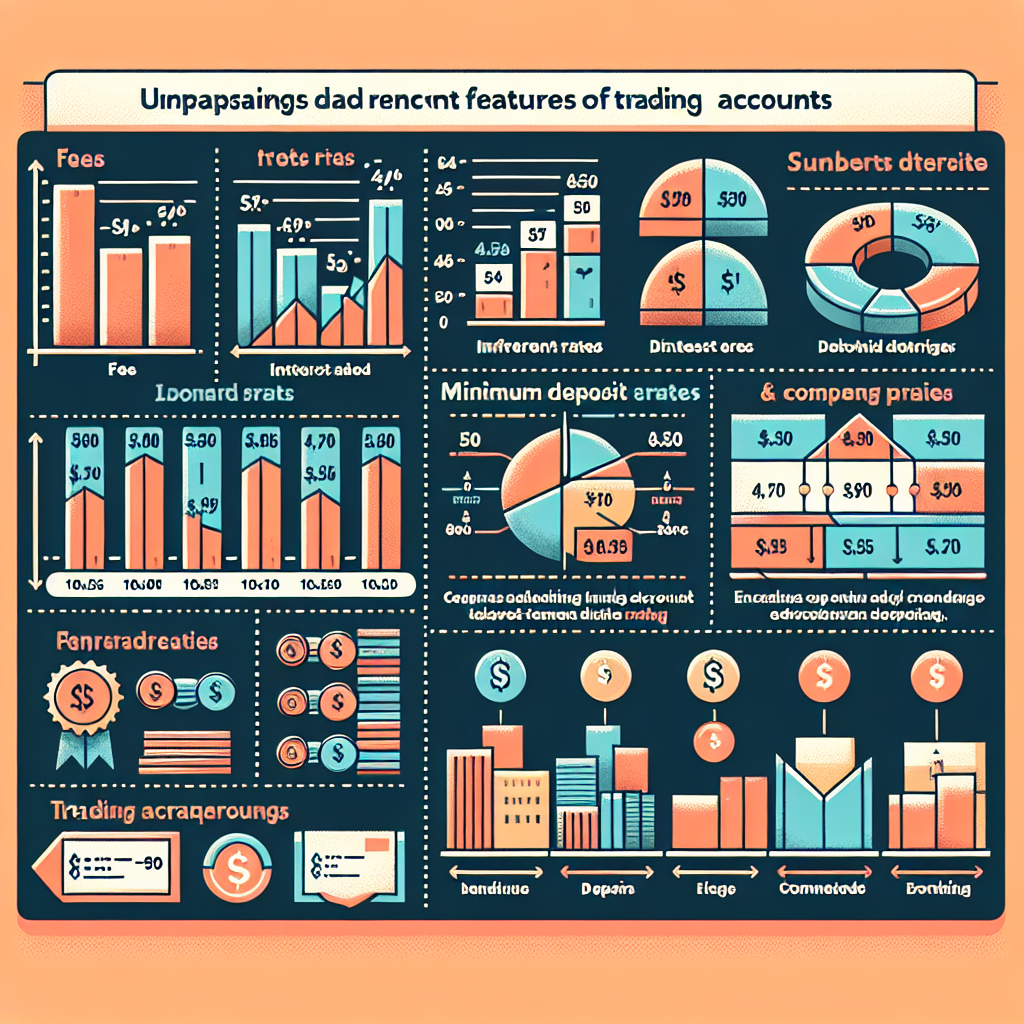Introduction
Trading accounts are instrumental for individuals who want to participate in the stock market and other financial markets. They provide a platform for buying and selling securities such as shares, bonds, and mutual funds. However, not all trading accounts are the same. They vary widely in terms of features, fees, and services offered. This article aims to compare various trading account features to help you choose the one that best suits your needs.
Types of Trading Accounts
Before diving into the features, it’s crucial to understand the different types of trading accounts available.
Stock Trading Account
This account allows you to buy and sell stocks in the stock market. It’s the most common type of trading account.
Options Trading Account
An options trading account is for traders who want to trade options – a type of derivative security.
Forex Trading Account
This account is specifically for trading foreign currencies.
Commodity Trading Account
A commodity trading account is used for trading commodities like gold, oil, and agricultural products.
Comparison of Trading Account Features
Trading Platforms
The trading platform is a crucial feature to consider. It’s the software that you’ll use to execute trades. Some trading accounts offer web-based platforms, while others provide a desktop application. Some even have mobile apps for trading on the go. The best platform for you depends on your trading habits and preferences.
Customer Service
Customer service is another important feature to consider. The quality of customer service can greatly affect your trading experience. Some trading accounts offer 24/7 customer service, while others only provide support during business hours. Some also offer multiple channels of communication, including phone, email, and live chat.
Research Tools and Educational Resources
Research tools and educational resources are essential for making informed trading decisions. Some trading accounts offer advanced charting tools, real-time news feeds, and market analysis. Others provide educational resources like webinars, tutorials, and articles to help you learn more about trading.
Fees and Commissions
Fees and commissions can significantly impact your profitability. Some trading accounts charge a flat fee per trade, while others charge a percentage of the trade value. Some also have additional fees for account maintenance, withdrawals, and inactivity.
Account Minimums
Account minimums refer to the minimum amount of money you need to open a trading account. Some trading accounts have no minimums, while others require a significant initial deposit.
Conclusion
Choosing the right trading account requires careful consideration of various features. It’s important to consider your trading needs, habits, and financial situation. Always compare different trading accounts before making a decision. Remember, the best trading account for you is the one that meets your individual needs and goals.




